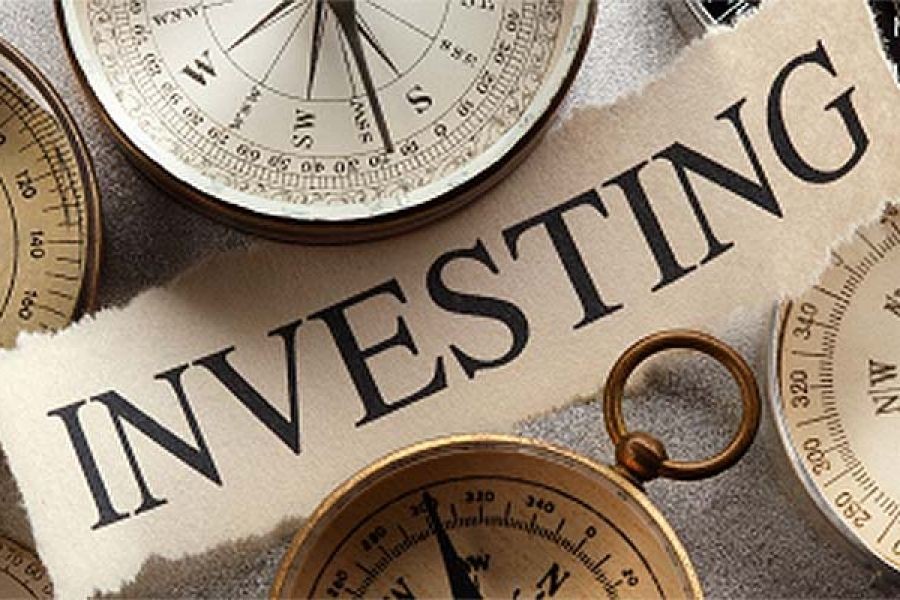In the dynamic landscape of global economies, New Zealand's performance often sparks curiosity, especially when compared to other OECD countries. Investors keen on understanding New Zealand's economic standing will find insights from such comparisons invaluable for making informed decisions. This article dives deep into how New Zealand's economic development stacks against its OECD peers, offering a data-backed analysis with real-world examples and expert insights.
Case Study: New Zealand’s Economic Resilience Amidst Global Challenges
Problem: In recent years, New Zealand has faced significant economic challenges, including the global financial crisis, natural disasters, and more recently, the COVID-19 pandemic. These events have tested the resilience of its economy, particularly in sectors like tourism, agriculture, and export-driven industries.
Action: To combat these challenges, New Zealand implemented a series of strategic policy measures. The Reserve Bank of New Zealand lowered interest rates and engaged in quantitative easing to stimulate the economy. Additionally, the government launched fiscal stimulus packages aimed at protecting jobs and supporting businesses, particularly small and medium-sized enterprises (SMEs).
Result: The impact of these measures was significant. According to Stats NZ, New Zealand's GDP growth rate in 2022 rebounded to 5.3%, outperforming the OECD average of 4.9%. Unemployment rates also fell to a record low of 3.2%, showcasing the country's robust recovery compared to many other developed nations.
Takeaway: New Zealand's approach to economic resilience highlights the importance of agile fiscal and monetary policies. For investors, this case study underscores the potential for stable returns in a well-managed economic environment, particularly in times of global uncertainty.
Comparative Analysis: Economic Indicators in New Zealand vs. Other OECD Countries
To better understand New Zealand's economic standing, it's crucial to analyze key indicators such as GDP growth, unemployment rates, and inflation. According to the OECD Economic Outlook, New Zealand's GDP growth over the past decade has been relatively stable, averaging around 2.5%. This is comparable to the OECD average, reflecting a strong economic foundation.
- Unemployment Rate: New Zealand's unemployment rate has consistently been below the OECD average, highlighting a robust labor market. In 2023, the rate was 3.2%, compared to the OECD average of 5.4%.
- Inflation: Inflation in New Zealand has been well-managed, with the Reserve Bank maintaining a target range of 1-3%. As of 2023, inflation stood at 2.5%, in line with the OECD average, ensuring price stability and purchasing power.
- Trade Balance: New Zealand has a strong export sector, particularly in agriculture and technology, contributing to a positive trade balance. The country’s trade policies and agreements have facilitated this growth, making it a competitive player globally.
Real-World Example: Xero’s Global Expansion Strategy
Problem: Xero, a cloud-based accounting software company founded in New Zealand, faced the challenge of expanding globally while maintaining its competitive edge in the domestic market.
Action: Xero adopted a strategic approach by leveraging New Zealand's strong technological infrastructure and skilled workforce. The company invested heavily in research and development and formed strategic partnerships to enhance its product offerings.
Result: Xero's efforts paid off, with the company now serving over 3 million subscribers worldwide. Its revenue has grown significantly, with a reported increase of 29% in 2023. This success highlights the potential for New Zealand companies to thrive on the global stage.
Takeaway: Xero's story illustrates the opportunities available for Kiwi businesses willing to innovate and expand globally. For investors, this example underscores the value of investing in New Zealand's dynamic tech sector.
Pros vs. Cons: Investing in New Zealand’s Economy
Pros:
- Stable Economic Environment: New Zealand offers a stable political and economic climate, making it an attractive destination for investment.
- Strong Regulatory Framework: The country's regulatory policies support business growth and innovation, particularly in technology and agriculture.
- Diverse Investment Opportunities: From agriculture to tech startups, New Zealand presents a wide range of sectors for investors to explore.
Cons:
- Geographical Isolation: New Zealand's distance from major markets can pose logistical challenges for certain industries.
- Market Size: As a smaller economy, New Zealand offers limited domestic market size compared to larger OECD countries.
- Currency Fluctuations: Investors must navigate potential risks associated with currency exchange rates.
Debunking Myths: Common Misconceptions About New Zealand’s Economy
Myth: "New Zealand is primarily an agricultural economy."
Reality: While agriculture is a key sector, New Zealand's economy is diverse, with significant contributions from technology, manufacturing, and services (source: MBIE).
Myth: "Investing in New Zealand is risky due to natural disasters."
Reality: Advanced infrastructure and proactive disaster management strategies have minimized risks, ensuring economic stability (source: Reserve Bank of NZ).
Future Trends: The Road Ahead for New Zealand’s Economy
Looking forward, several trends are likely to shape New Zealand's economic landscape:
- Digital Transformation: As digital technologies continue to evolve, New Zealand's tech sector is poised for significant growth, attracting both investment and talent.
- Sustainability Initiatives: With a strong focus on sustainability, New Zealand is likely to lead in green technologies and renewable energy solutions.
- Trade Partnerships: Strengthened trade agreements with countries like China and the EU will enhance export opportunities, fostering economic growth.
Conclusion
In conclusion, New Zealand's economic development, characterized by resilience, innovation, and strategic global engagement, positions it as a compelling choice for investors. By understanding key economic indicators, leveraging local success stories like Xero, and staying attuned to future trends, investors can make informed decisions that align with their financial goals. As New Zealand continues to evolve in the global economic arena, the opportunities for growth and investment remain abundant.
What’s your take on New Zealand’s economic future? Share your insights below!
People Also Ask (FAQ)
How does New Zealand’s economy compare to the rest of the OECD? New Zealand's economy is characterized by stable GDP growth, low unemployment, and well-managed inflation, often outperforming the OECD average in these areas.
What are the biggest investment opportunities in New Zealand? Key opportunities lie in technology, agriculture, and sustainable energy sectors, driven by innovation and strong regulatory support.
How can investors benefit from New Zealand’s economic policies? Investors can benefit from New Zealand’s stable economic environment, robust regulatory framework, and diverse sector opportunities.
Related Search Queries
- New Zealand economic growth vs OECD
- Investment opportunities in New Zealand
- New Zealand GDP comparison
- New Zealand technology sector growth
- New Zealand trade policies

































BudJay Enterprises, LLC
7 months ago